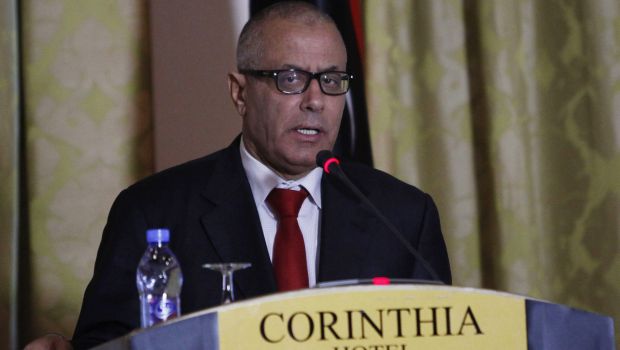A surprised observer asked how Libya’s abducted Libyan prime minister was released so quickly over the weekend. Ali Zeidan, who was kidnapped in his pyjamas at dawn by local militias, was released that evening! The surprise was not that he was kidnapped, but rather that he was released.
Not all Libyans are skeptical about the incident. In their eyes Zeidan is a hero owing to his attitude and courage in expressing himself despite the constant threats to his life. But being brave is not enough for Libyans. They need heroic determination to change their difficult situation. Libya has established a parliament, held elections, and received international support to build a state, but authorities have not succeeded in establishing genuine governmental institutions yet. Control of Libya is being contested by different militias that overlap with tribal, regional and political groups.
It is not surprising that Libya is insecure. It is the result of the legacy of 40 years of Gaddafi’s rule. Muammar Gaddafi conceived a regime of revolutionary and popular committees that encouraged criminals to form gangs, pass bills and manage the cities and ministries. It is very similar to Bashar Al-Assad regime in Syria, which managed to rip up and destroy the country, with the opposition failing to unite despite the common objective of its factions.
Colonel Gaddafi died but his legacy remains. Tripoli is awash with armed groups claiming legitimacy. They dare to kidnap people while claiming responsibility for maintaining law and order. Politicians in parliament are allied to these militias. After his release, the prime minister described what happened as political bickering, and said that his abduction was masterminded by a rival political group seeking to overthrow him, after it failed to obtain the required votes in parliament!
Why did Libya split into groups, more than in Tunisia and Egypt? Why is the country now facing the real threats of civil war and divisions? For the same reason it is unstable: the legacy of Gaddafi’s regime.
Libya has more elements for recovery and success in place than the other Arab Spring countries. Libya’s population is half the population of Tunisia, but its government’s budget is USD 70 billion compared to the USD 10 billion in Tunisia. Nevertheless, the political and security failure in Libya is much greater. The Libyan government will need international support to restore security, get rid of the dozens of militias, and establish the new government.
Even if the situation gets worse, it will not be surprising if concerned countries like the European Union states rush to provide help in order to restore security in Libya. Europe is interested in Libya for three reasons: oil, Al-Qaeda and illegal immigrants. The demonstrators have publicly raised the flags of Qaeda to protest against Americans “kidnapping” Abu Anas al-Liby, a senior Qaeda suspect.
This is what the politicians—before the Libyan people—have to realize. Bickering with political groups that resort to militias and outbid each other will plunge the country into chaos. The responsibility of Zeidan’s government is to abolish and disarm the militias. What happened made him a hero in the eyes of the majority of Libyans, who saw in him a brave figure, refusing to bargain i the face of threats or be blackmailed.
